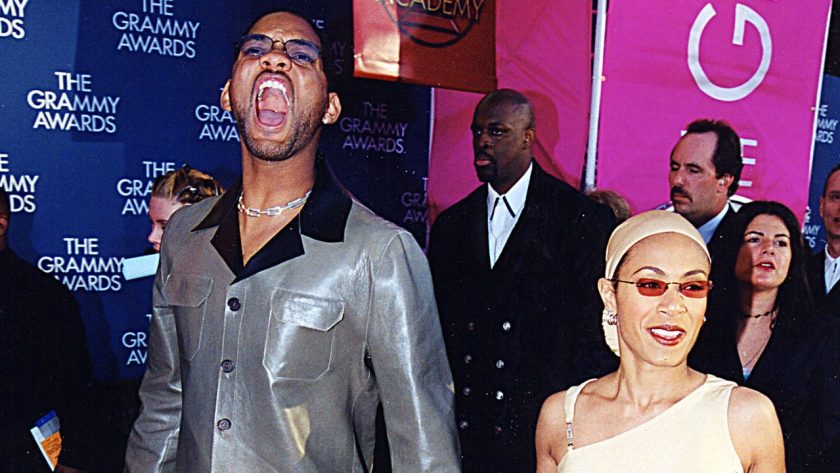Keep my wife’s name out of your fucking mouth! In the weeks leading up to (and days following) the release of her heal-all memoir, Worthy, we’ve learned much about Jada Pinkett Smith, a woman who has personified dignity as speculation into her private life has increasingly scuffled with her glittering career (shout out to Scream 2, this and every October henceforth).
We know Pinkett Smith’s full story is rich and varied, encased in both privilege and despair. We know about her deeply loyal friendship with Tupac (who apparently also had alopecia but never told anyone). We know she knew, immaculately, that she was pregnant with Jaden mere moments after his conception. We know about her recent extramarital entanglement with August Alsina. We know she currently practices abstinence from sex and alcohol.
But it’s arguably Pinkett Smith’s marriage to Hollywood behemoth Will Smith, and her reign as his fresh princess, that’s most captivated our attention. Rumors have dogged the celebrity couple as rumors about celebrity couples are wont to do, reaching a fever pitch in light of The Slap™, when husband Will clocked comedian Chris Rock in the wake of Rock’s alopecia-adjacent G.I. Jane joke at Pinkett Smith’s expense. We now know that Pinkett Smith, like the rest of us, initially though The Slap was a bit. We know that her and Will weren’t exactly together at the time, despite him calling her his wife. We know Chris once asked her out, thickening the plot. We know Pinkett Smith would never actually divorce Will. We know, if I’m being completely brutal, a touch more than we ever needed to.
The roll-out of Worthy is a group chat we can’t leave, as Pinkett Smith strategically portions out revelations that keep us gripped (and the press works its way through 416 pages). It’s difficult to mind one’s own business while being offered up the juiciest details from one of the planet’s most famous couples. We pretend to hate it, but we can’t stop lapping it up. The public, the media, and Pinkett Smith herself are all complicit in the triangle of disclosure.
We’re living through times of commodified vulnerability. That’s not to say feelings aren’t real, but the industrial oversharing complex can be traced back to the first season of Keeping Up With the Kardashians, when usually behind-closed-doors home truths were revealed, and dirty laundry was aired with abandon. The more you speak your truth, and the more difficult that truth is, the more consequential the rubbernecking, and the more the attention economy…pays attention. Personal truth is a currency, emotional coins that are especially essential spending on a memoir tour.



